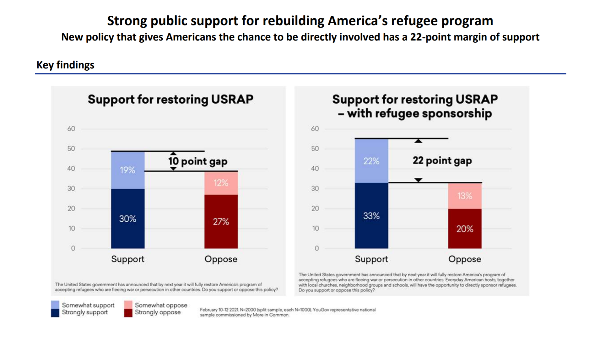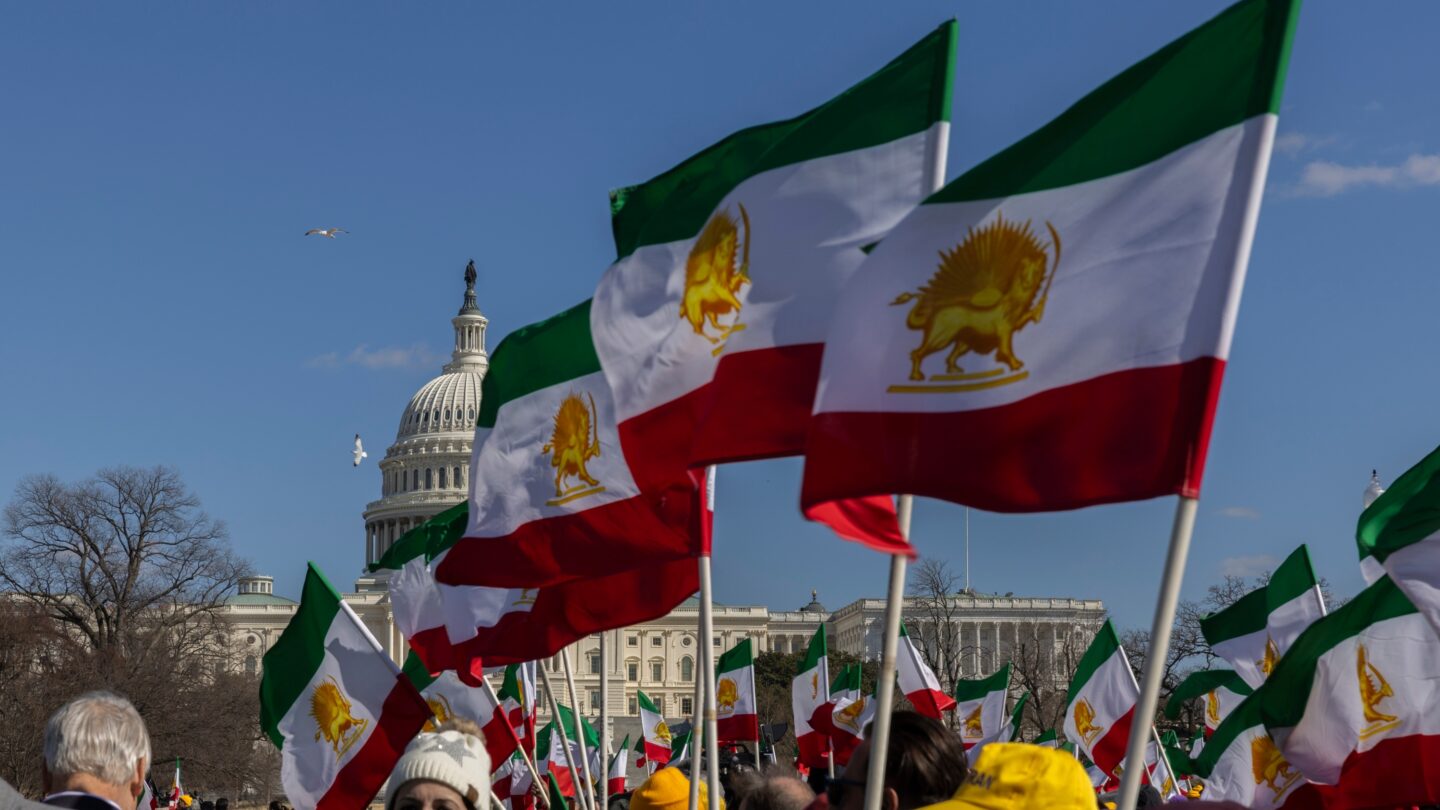President Biden’s recent executive orders on refugee resettlement instruct agency heads to enhance resettlement capacity by developing and expanding refugee sponsorship, a formal process by which the American people can welcome and support refugees through church congregations, local community organizations, universities, and charities. The chief argument in favor of expanding refugee sponsorship is that it improves refugee outcomes by providing increased resources to refugees during their transition, from more financial support to denser social networks. A recent poll also suggests refugee sponsorship has a tangible impact in increasing support for and reducing opposition to refugee resettlement because of the direct links established between refugees and local communities.
The poll, conducted by YouGov and commissioned by the nonprofit group More In Common, offers vital lessons for refugee advocates and policymakers on both the policy and politics of refugee resettlement.

Restoring America’s refugee resettlement program is supported by 49 percent of Americans and opposed by 39 percent, a 10-point margin of support. More encouraging, the inclusion of refugee sponsorship both increases support and decreases opposition, as the chart above shows. With the inclusion of refugee sponsorship, the margin of support for rebuilding the refugee program more than doubles, to 22 points (55 percent in favor, 33 percent opposed).
The poll also found:
- Black Americans strongly support the rebuilding of the refugee program – especially when sponsorship is an option (with support rising from 53 percent to 67 percent).
- Support does not vary by income. Those making more than $100,000 are about as likely to support the policy as those making less than $30,000 (60 percent versus 58 percent).
- The new policy is supported by Americans under 45 by a margin of three to one (65-19 percent), while Americans over 65 oppose it (50-41 percent).
- Religious Americans are more supportive of welcoming refugees when given the sponsorship opportunity. The most significant effect is among Catholics, who support the comeback of the refugee program by a 9-point margin when sponsorship is mentioned. (50 percent in favor and 41 percent opposed, compared to 43 percent and 45 percent when the sponsorship policy is not mentioned).
Support for rebuilding the refugee program is strongly related to a person’s party identification and ideology: 93 percent of self-identified “very liberal” Americans, 57 percent of “moderate” Americans; and 24 percent of “very conservative” Americans support rebuilding the refugee program.
While we cannot overstate the case that refugee sponsorship should appeal to people of all ideologies, the poll finds that “opposition to rebuilding the refugee program is high among Americans who identify as ‘very conservative’ (78 percent).” Still, it notes adding refugee sponsorship reduces that opposition to 72 percent.
There is no doubt that refugee resettlement is still viewed as a partisan issue. But we should remember that for many years there was a long, bipartisan consensus on resettlement. The Niskanen Center has long been a long-time advocate of refugee sponsorship, and we are encouraged that the new administration is consistently incorporating the idea into its plan to rebuild the refugee program, including it both in President Biden’s February 4 executive order and the emergency report to Congress.
A more bipartisan path forward can be forged on refugee resettlement, and refugee sponsorship will help.
Photo by Alondra Olivas on Unsplash





